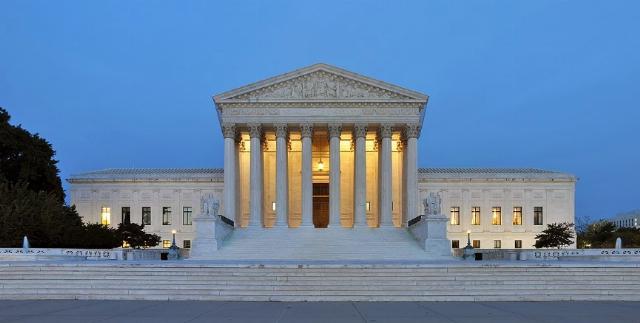Supreme Court rules for abortion pills? Not so fast
The Supreme Court recently delivered a unanimous decision regarding chemical abortion, specifically the use of the mifepristone pill. Though some might view this as an endorsement of the abortion pill, a closer examination reveals a strategic opportunity for the pro-life movement. The Court's ruling, in essence, opens a new avenue for a permanent pro-life victory.
The Court did not rule on the merits of the case against the FDA's approval of mifepristone. Instead, it stated that the plaintiffs lacked standing, meaning they were not directly harmed by the FDA's decision. This technicality can be addressed by finding plaintiffs who are directly affected by the approval and use of mifepristone, such as parents of minors harmed by the drug or women coerced into using it.
The pro-life movement can take heart from Justice Clarence Thomas’s concurring opinion, which highlighted the issue of third-party standing. He emphasized that plaintiffs cannot assert the rights of others, which has significant implications for future abortion-related cases. This could mean that abortion providers and advocates can no longer claim to represent the interests of women in legal battles over abortion restrictions, a major shift from previous court practices.
This ruling could eventually lead to overturning previous decisions that allowed third-party standing in abortion cases. By requiring plaintiffs to have direct standing, the Court is setting a new precedent that could undermine many pro-abortion arguments that have relied on this concept for decades.
The case now returns to the 5th Circuit Court, where the focus will be on finding plaintiffs directly harmed by mifepristone. This could include women who suffered medical complications, parents of minors who were given the drug without proper consent, or victims of coerced abortions. Such cases will likely provide the necessary standing to challenge the FDA's approval of mifepristone effectively.
Meanwhile, the pro-life movement should also consider the implications of the federal Comstock Act, which prohibits the mailing of abortion-inducing drugs. Attorney General Merrick Garland’s refusal to enforce this law has allowed the widespread distribution of mifepristone, making a vast number of chemical abortions technically illegal. The Supreme Court's recent decision does not change this fact, but signals that with the right plaintiff, these issues can be brought back to court.
Chemical abortions now account for over half of all abortions in the United States. Each instance of mailing mifepristone violates federal law, yet the attorney general has failed to act. This presents a significant opportunity for pro-life advocates to push for enforcement of existing laws and potentially bring substantial legal consequences to those involved in the distribution of these drugs.
The health risks associated with chemical abortions are significant. Studies show a 44% increase in breast cancer risk, a 52% increase in future pre-term births, and a fivefold increase in the risk of suicide. The likelihood of emergency room visits due to complications like sepsis, hemorrhage, and undiagnosed ectopic pregnancies also increases by 500% with chemical abortions. These dangers provide compelling reasons to revisit the FDA's approval of mifepristone and to enforce laws that could prevent its distribution.
Looking forward, if Donald Trump wins the upcoming election, it is likely that a new attorney general will enforce the Comstock Act, potentially saving millions of unborn lives. The Supreme Court's decision, though not an immediate victory, paves the way for significant legal battles that could reshape abortion law in the United States.
Rev. Jim Harden is the CEO of CompassCare, a pro-life medical network based in New York, which garnered national attention after its Buffalo medical office was firebombed. He is dedicated to exposing unequal enforcement of laws, advocating for moral public policy, and protecting human life from the womb to the tomb. Jim Harden is married with ten children.

Image: Joe Ravi via Wikimedia Commons, CC BY-SA 3.0.





